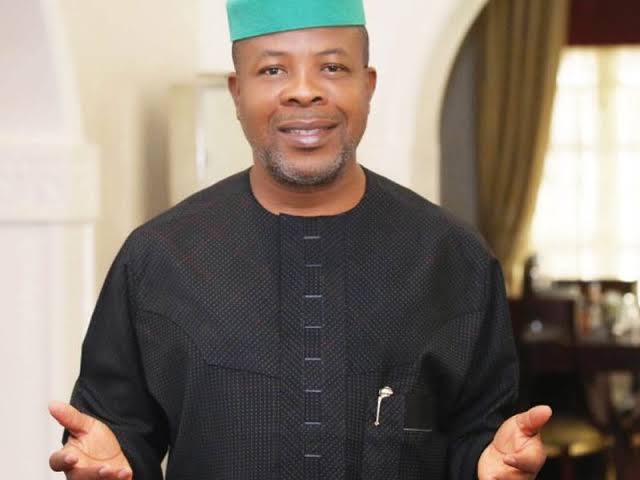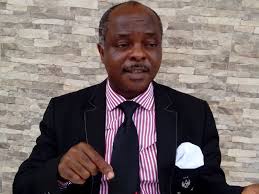Imo State, one of Nigeria’s most vibrant and politically significant states, has faced a tumultuous period of governance in recent years. From economic challenges to insecurity and allegations of mismanagement, many residents are yearning for a leader who can restore stability, accountability, and development to the state. Amid these calls for change, the potential return of Rt. Hon. Emeka Ihedioha, a former governor of Imo State, has ignited hope and renewed conversations about the future of the state.
Known for his pragmatic leadership and focus on rebuilding public trust, Emeka Ihedioha represents a beacon of possibility for a state that has witnessed political and economic turbulence. Here’s how his comeback could help save Imo State.
1. A Legacy of Accountability and Transparency
Emeka Ihedioha’s brief tenure as governor in 2019 remains etched in the memory of Imo residents. In just seven months, he prioritized good governance by restoring due process, promoting fiscal responsibility, and ensuring transparency in public service. His administration was lauded for introducing reforms such as the automation of the payroll system to eliminate ghost workers and plugging financial leakages in the state’s finances.
His commitment to accountability gave Imo citizens a sense of trust in governance, a stark contrast to the allegations of corruption and opacity that have plagued successive administrations. A return of Ihedioha could restore this lost confidence and reestablish systems that prioritize the welfare of the people over political patronage.
2. Focus on Infrastructure Development
During his short stint as governor, Ihedioha prioritized infrastructure development as a critical component of his administration. His “Rebuild Imo” agenda was a long-term blueprint aimed at transforming the state into a model of modern development. Some of his key projects included:
• Road Rehabilitation: Ihedioha initiated and completed over 25 road projects in various parts of the state, including the reconstruction of the Owerri-Orlu Road, Owerri-Okigwe Road, and MCC-Uratta Road. These roads improved intra-state connectivity and boosted economic activities.
• Rural Road Development: His administration focused on rural development by launching the Rural Access and Mobility Project (RAMP-2), which rehabilitated several roads in rural areas to enhance trade and transportation.
• Water Projects: Recognizing the water supply challenges in Imo, he embarked on revamping the Otamiri Water Scheme, ensuring that Owerri and its environs had access to clean, potable water.
• Streetlight Installation: To enhance security and economic activity at night, he launched a solar-powered streetlight project in key areas of Owerri.
Since his exit, many of these projects have either been abandoned or poorly maintained. A return of Ihedioha could revive the momentum for rebuilding critical infrastructure, positioning Imo as a hub for sustainable development.
3. Rebuilding Security and Public Trust
Imo State has grappled with escalating insecurity, including issues of banditry, political violence, and kidnappings. These challenges have undermined investor confidence and left citizens in fear. Ihedioha’s leadership style, which emphasizes collaboration with stakeholders and grassroots engagement, could be instrumental in addressing these issues.
During his tenure, he took proactive measures such as:
• Strengthening the Imo State Security Network and improving community policing strategies.
• Establishing strong partnerships with federal security agencies to combat crime.
• Implementing a citizen engagement framework where local leaders played active roles in conflict resolution.
His ability to rally local leaders, security agencies, and civil society groups to restore peace and stability would be a critical step toward rebuilding public trust and ensuring the safety of Imo’s citizens.
4. Revitalizing Economic Growth
Imo State is blessed with abundant natural and human resources, but its economic potential has remained largely untapped due to poor governance. Ihedioha’s approach to economic revitalization focuses on fostering an enabling environment for businesses, empowering small and medium enterprises (SMEs), and attracting investment.
His administration took significant steps to boost the state’s economy, including:
• Reviving the moribund Adapalm Plantation, a major source of employment and revenue for the state.
• Partnering with private investors to resuscitate industries in the state.
• Creating a State Investment Promotion Agency (ISIPA) to attract both local and international investors.
His return could reignite these efforts, creating jobs and addressing youth unemployment—a major issue in the state.
5. Strengthening Institutions and the Rule of Law
A hallmark of Ihedioha’s leadership was his commitment to strengthening institutions rather than relying on personal influence. He sought to rebuild the civil service, depoliticize governance, and ensure that the rule of law prevailed in all aspects of administration.
Some of his key reforms included:
• Digitization of government records to improve efficiency and reduce bureaucratic bottlenecks.
• Judicial reforms aimed at ensuring fair and transparent legal processes.
• Implementing a performance-based evaluation system for government workers to enhance productivity.
In a state where governance has often been marred by executive overreach and disregard for due process, Ihedioha’s return could reestablish a government that operates within the bounds of the law, promoting equity and justice for all.
6. Restoring Unity and Hope in Imo State
The political polarization in Imo State has left many residents disillusioned and divided. Ihedioha’s return presents an opportunity to bridge these divides and foster unity among the people. His inclusive leadership style and focus on collective progress over personal ambition could help heal the wounds of the past and inspire a shared vision for the future of Imo.
Conclusion: A Fresh Start for Imo State
The possible comeback of Emeka Ihedioha has sparked hope among many Imo residents who believe in his vision for a better state. His track record of transparency, infrastructure development, security, and economic revitalization positions him as a leader who could bring much-needed change to Imo.
In a time of uncertainty, Ihedioha’s return offers a chance for a fresh start—a leadership rooted in competence, accountability, and a genuine commitment to the welfare of the people. For Imo State, his comeback could be the turning point in its journey toward progress and stability.
By Comrade Ahizi Martins U
Member Rebuild Imo in Diaspora











